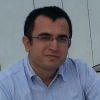The plight of thousands of migrants attempting to cross international borders by sea has captured the world’s attention. This one-hour webinar with Saeed Ullah Khan examined the current crisis and discussed how the international community can respond. We looked into the history of these migrants and analysed how and why their numbers have so dramatically increased.
Register for the Human Rights Campus to access the recording of this webinar. You’ll find the recording on the Public Webinar Series page in the Open courses section.
Wednesday, 19 August 2015 at 14h00 UTC/GMT
What are the roots of the current crisis?
How can the international community respond?
“Boat people,” as these migrants are commonly called, is not a new term. It originally referred to thousands of Vietnamese who fled their country by sea in small boats following the collapse of the South Vietnamese government in 1975. In recent years many other refugees and migrants have likewise taken to the sea. They have included Somalis and Ethiopians crossing the Gulf of Aden to Yemen, sub-Saharan and North Africans crossing the Mediterranean Sea to enter Europe, and Afghans and others leaving Indonesian shores for Australia. Recently, the situation for these migrants has become even more alarming, especially as more people attempt to cross the Mediterranean. In 2014, 170,000 people arrived in Europe alone as compared to 60,000 in 2013 and 20,000 in 2012, according to the IOM and UNHCR. An increasing number of migrants have been lost at sea over the past three years, with the president of Doctors Without Borders Italy calling the Mediterranean Sea “a mass grave.”
There are many reasons for this increase in migration and refugee flows. We discussed the main migratory routes for these migrants and the factors contributing to their migration in order to better understand the current situation. Finally, we examined how the political response to “boat people” has changed over time and explored how the international community can resolve this crisis.
Target audiences
This webinar is intended for:
- NGO staff members and service providers;
- staff of inter-governmental organisations;
- government officials (local and national level) dealing with forced migration and refugee-related issues;
- all others interested in migration and in protecting migrants’ human rights.
About the presenter
 Saeed Ullah Khan has extensive experience in forced migration and related issues in the humanitarian field. Originally from Pakistan, he has worked for the United Nations High Commissioner for Refugees, International Rescue Committee and other organisations in Somalia, Kosovo, Tanzania, Burundi, Kenya, Georgia, Jordan, Afghanistan and Pakistan – which has provided him with first-hand experience in some of the major emergency situations in the last decade. He currently works as an independent consultant and advisor on humanitarian issues with the Swiss Agency for Development and Cooperation in Pakistan. Prior to this, he worked as Country Director with the Norwegian Refugee Council in Pakistan, managing an annual response of USD 24 million for IDPs, refugees and returnees. He is actively involved in the development of forced migration strategies in Pakistan for different INGOs and donor agencies. Mr. Khan is a World Bank Robert McNamara Fellow and a British Commonwealth Scholar. He holds an MA in Development Economics from the University of Sussex (UK) and received advanced training from Oxford and Harvard Universities.
Saeed Ullah Khan has extensive experience in forced migration and related issues in the humanitarian field. Originally from Pakistan, he has worked for the United Nations High Commissioner for Refugees, International Rescue Committee and other organisations in Somalia, Kosovo, Tanzania, Burundi, Kenya, Georgia, Jordan, Afghanistan and Pakistan – which has provided him with first-hand experience in some of the major emergency situations in the last decade. He currently works as an independent consultant and advisor on humanitarian issues with the Swiss Agency for Development and Cooperation in Pakistan. Prior to this, he worked as Country Director with the Norwegian Refugee Council in Pakistan, managing an annual response of USD 24 million for IDPs, refugees and returnees. He is actively involved in the development of forced migration strategies in Pakistan for different INGOs and donor agencies. Mr. Khan is a World Bank Robert McNamara Fellow and a British Commonwealth Scholar. He holds an MA in Development Economics from the University of Sussex (UK) and received advanced training from Oxford and Harvard Universities.
How to join
Register for HREA’s free Human Rights Campus in order to watch the recording. You’ll find the recording on the Public Webinar Series page in the Open courses section.
HREA offers e-learning courses Human Trafficking and Smuggling, Forced Migration and EU Migration and Asylum Law and Policies. You can watch other free webinars in HREA’s public webinar series by registering for the Human Rights Campus.
